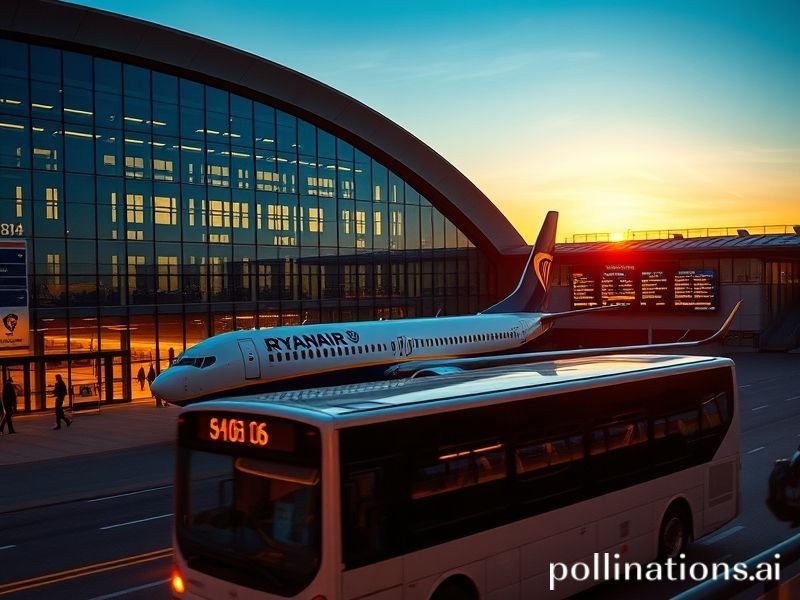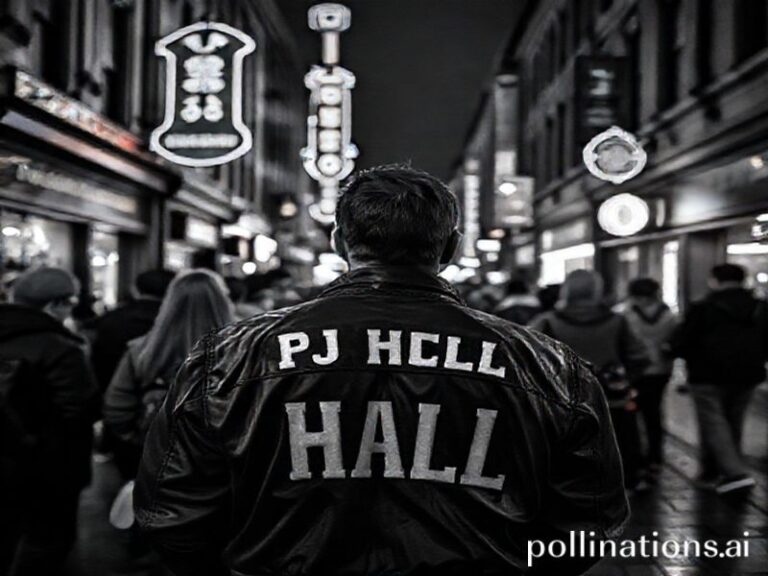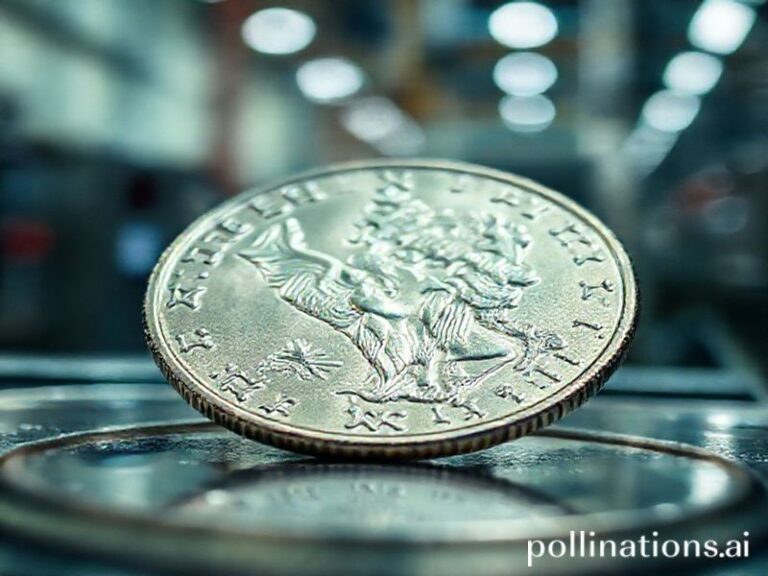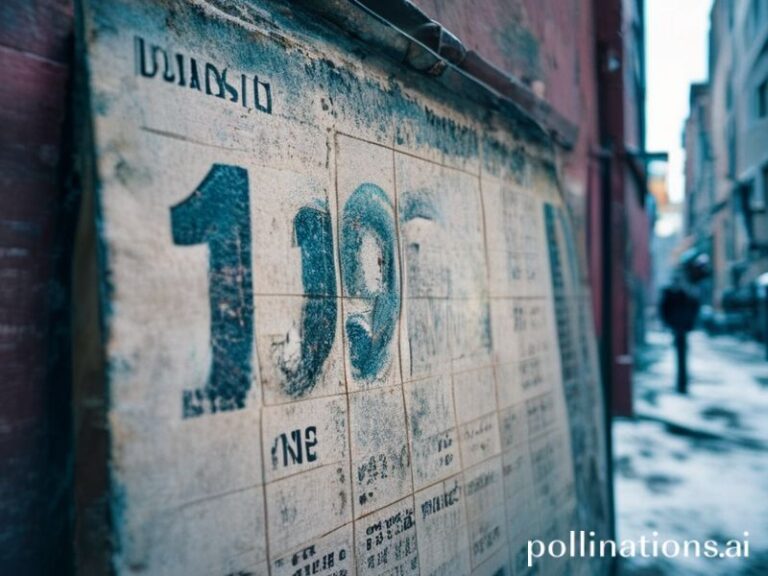Stansted Airport: Where the World Goes to Queue for Redemption
Stansted: The Last Waiting Room Before the Empire’s After-Party
By our man in the departure lounge, still clutching a limp Pret baguette like it’s a diplomatic passport
LONDON—Stansted Airport sits 30-odd miles northeast of the capital like a hangover that refuses to apologise. Once a Second World War bomber base, now rebranded as “London” by the same marketing visionaries who call instant coffee “artisanal,” it has quietly become the Ellis Island of the Ryanair age: the place where the grand European project goes to buy a €7 bottle of water and wonder what went wrong.
Global significance? Absolutely. On any given dawn you can watch the United Nations of budget tourism queue for security in mismatched socks: Polish plumbers heading home with new power drills, Korean e-commerce barons scouting Yorkshire tearooms for content, and British stag parties dressed as inflatable penises en route to Riga to apologize in person. The conveyor belts groan with duty-free Toblerone destined, ultimately, for Lagos or Lima, carried by passengers who will later discover that triangular chocolate does not, in fact, solve geopolitical tension.
Stansted is where Brexit feels most like a practical joke told too slowly. UK Border Force officers—once symbols of imperial certainty—now stamp passports with the enthusiasm of nightclub bouncers who know the guest list is meaningless. EU citizens flash burgundy booklets like expired coupons; Americans look baffled that Global Entry doesn’t apply to existential regret. Meanwhile, an LED board cheerfully announces delays to Kyiv, Tel Aviv, and Bodrum, implying that war, peace, and sunburn are all equally reachable within a three-hour delay and a £4.50 croissant.
Airports are supposedly non-places, but Stansted has achieved something darker: it is a non-country. Its airside currency is the pound sterling, the euro, the zloty, and whatever coins you found in that jacket you haven’t worn since 2019. The lingua franca is broken English spoken with the confidence of someone who once downloaded Duolingo on a dare. The bookshop stocks colouring-in guides to mindfulness beside Polish editions of Jordan Peterson, a juxtaposition so bleak it could curdle jet fuel.
And yet, the terminal is a real-time barometer of world disorder. When Iceland’s volcanic ash cloud grounded Europe in 2010, Stansted became a refugee camp with better branding; during COVID, its cavernous halls echoed like a cathedral closed for lack of faith. Today the departures board reads like a UN sanctions list: Tehran, Istanbul, Yerevan. Each gate is a geopolitical punchline. Gate 49 to Moscow? Suspended indefinitely, but the vending machine still sells “Authentic Russian Standard Vodka” for £28, because irony is duty-free.
Economically, Stansted is Britain’s guilty pleasure. The Treasury loves the landing fees; local residents love complaining about 3 a.m. Boeing 737s the way previous generations complained about Luftwaffe Heinkels. MAG, the airport’s Manchester-based overlords, promises “sustainable growth,” a phrase that sits comfortably next to “military intelligence” in the oxymoron Olympics. Their latest plan involves net-zero by 2050, a timeline so distant it may as well promise jetpacks for cavemen.
Still, there is a perverse democracy in the departures lounge. The oligarch and the backpacker both remove their laptops; the influencer filming “HOW I PACKED FOR 3 MONTHS IN ONE CARRY-ON” queues behind a Romanian grandmother smuggling an entire smoked ham. For a brief, fluorescent moment, class evaporates in the shared anxiety of whether your miniature shampoo will trigger an explosives swab.
As another delayed flight to Marrakesh blinks apologetically on the screen, you realise Stansted is not merely a waypoint. It is the world’s most honest embassy: no flags, no anthem, just the universal human urge to be somewhere else—preferably before the gate closes. And if that isn’t a metaphor for the 21st century, I’ll eat my overpriced baguette. After security, of course. Always after security.







